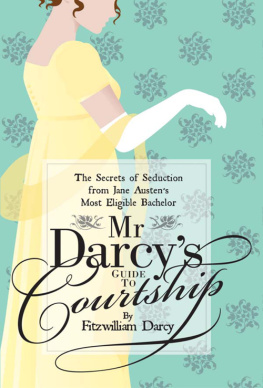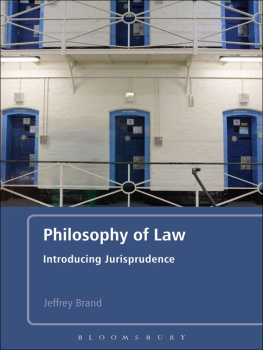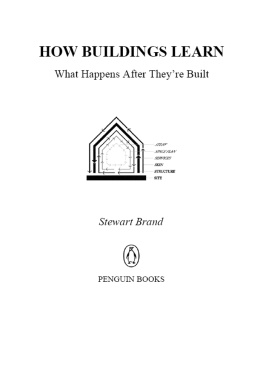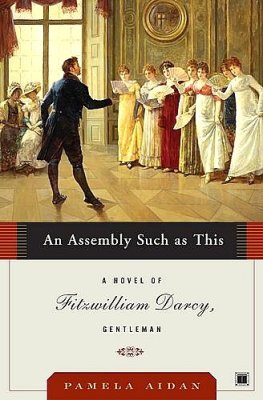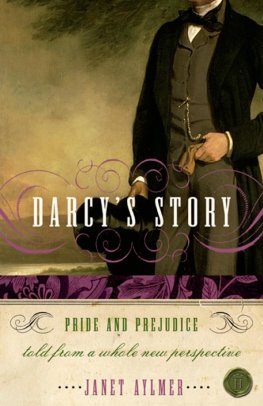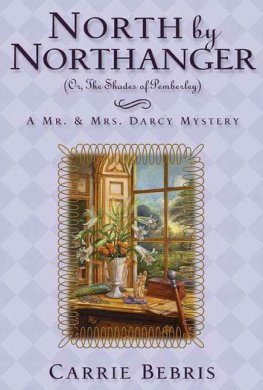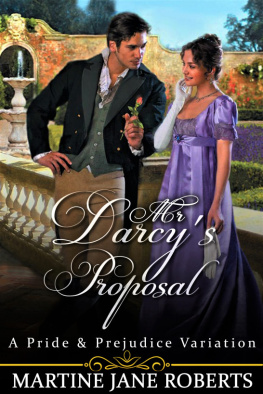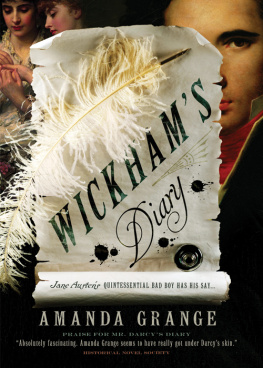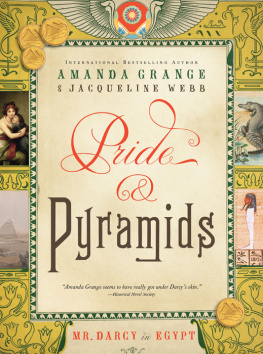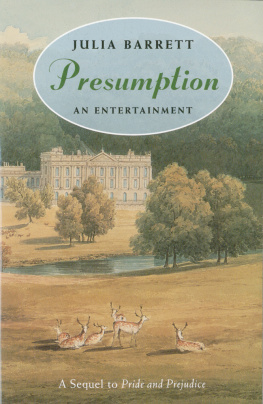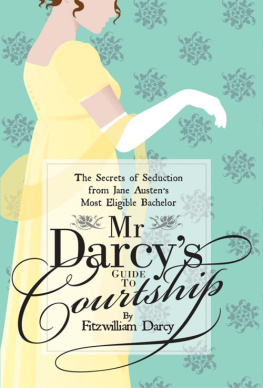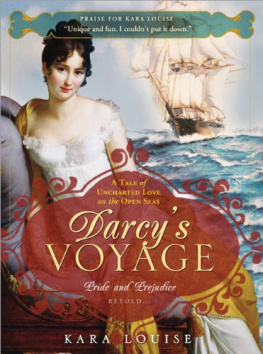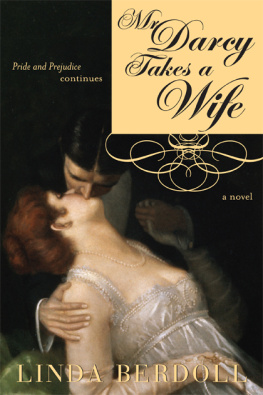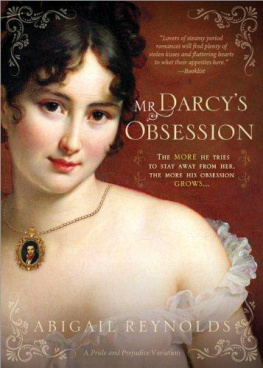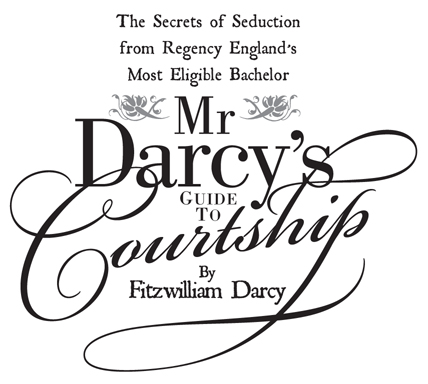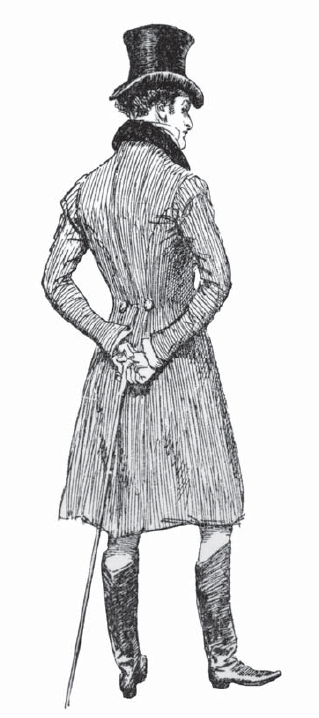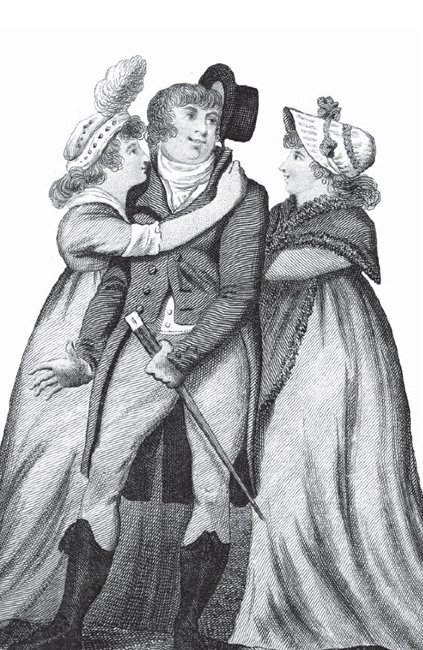MR DARCYS GUIDE TO COURTSHIP
Fitzwilliam Darcy
As dictated to Miss Emily Brand
1812
Dedicated to Mr. Charles Bingley.
May this cure you once and for all of your
utterly disastrous taste in females.
To Court. v.a [from the noun.]
To woo; to solicit a woman to marriage.
Dr Johnsons Dictionary, 1755
PREFACE
T HE modern modes of courtship being, as they are, perfectly abominable, I am convinced that no apology is required for the publication of this small volume on the subject. The unbridled improprieties daily to be observed in the conduct of young lovers are manifest even in the most fashionable circles, rendering many otherwise amiable creatures as disgusting to society as they are dangerous to themselves. These counsels were originally composed for the benefit of an esteemed friend, whose virtuous heart, open countenance, and almost cretinous inability to detect a lady of dubious intentions have conspired to disappoint him in affairs of the heart three times in as many months. In making them available to a general audience I hope to restore some decorum to modern romance, and to show how amorous addresses may efficiently and successfully be brought to a conclusion.
I presume that no introduction as to the particulars of my character and social standing are required, and I shall not waste my time and ink in relaying them. My repose being relentlessly disturbed by the swoons of passing ladies, I have long suspected that something in my countenance is irresistibly pleasing to the fairer sex. I flatter myself that being in possession of noble blood, a considerable estate, and being generally owned to be the most eligible bachelor in Derbyshire in short a gentleman of great parts I am quite qualified to pen a few short words on this delicate subject. Indeed, undisturbed as I am by the burdens attending the maintenance of a wife, I believe I shall suffer no check to the strength of my genius from beginning to end.
I am not at all solicitous to know whether the reader likes it or not; I am quite confident that it will commend itself to men and women of understanding, and therefore whosoever dislikes it deserves no claim to that title. I certainly have no reason to make apologies for the imbecility of my reader.
February 1812
PREFACE
TO THE SECOND EDITION
A S GOOD WINE needs no bush, so neither does this second edition of Mr Darcys Guide to Courtship stand in need of a commendatory epistle. The remarkable quality of the insights afforded by the original volume precluded any personal astonishment at the violence of the popular response, but I admit to being rather ill-prepared for the disorder that has rained down on Pemberley in the intervening months.
I have been deluged with letters from my readers some noble and many, regrettably, vulgar seeking advice on how they may better conduct their amours. Although I care not for indulging the whims of the common rabble, yet I will attempt to be civil to those who could at least construct a tolerable sentence: I conclude this revised edition with a selection of the complaints, to which is added my own honest counsel, and I trust that this puts an end to the matter. All missives received henceforth shall be promptly and unceremoniously dispatched to the fire.
September 1812
CONTENTS
Editors Note: There are some errata in this book, but the Author says he is too busy and important to give you a note of them.
CHAPTER I
Romance in the Regency Era
M ATRIMONY is a kind of lottery, wherein there are as many blanks as there are prizes. The romancers of this world would have you believe that where the yearnings of the heart are concerned, we all have a better guide in ourselves than any other person can be. I must undeceive you of this preposterous notion. In truth, there is no better guide than this book. I congratulate you for advancing your cause so unreservedly by your purchase of it.
The lower classes have grown rather fond of bemoaning their wants of freedom, but the ill effects of a bad matrimonial bargain will in fact be felt more keenly by persons of quality. While the unrefined feel at liberty to forget propriety (and the law) so far as to sell their spouses for half a crown and a pint of ale if the whim takes them, a gentleman must bury all thought of an unsightly wife with fine feasts, mistresses, the opera and vast quantities of brandy. One wonders, frankly, why the common herd complain so vociferously when they know nothing of the trials their betters endure. But I digress.
As the early season of courtship is crucial in determining the potential success of a match, time should not be wasted in sighing, fainting away, refusing food or breaking into song. I shall proceed to acquaint the reader with the woeful state of ignorance that currently reigns, the dangers of a hasty alliance, and my own faultless reflections on what is termed love, the whole offering a complete picture of English amorous affairs in the year 1812.
NO MISSION BUT MATRIMONY
T HE female inhabitants of this country labour under a general fixation with wedding bells. The mere mention of a wealthy bachelor is quite enough to send half a neighbourhood to distraction, and the prospect of his presence will transform a perfectly rational town into a giddy, giggling mass of new bonnets and ribbons. I can myself take complete credit for the recent revival of the economy of Lincoln, where proprietors of millinery and cosmetic tonics saw their income increase tenfold for the duration of my last visit. Not that the faces of its residents betrayed any benefit from the expense.
Next page
